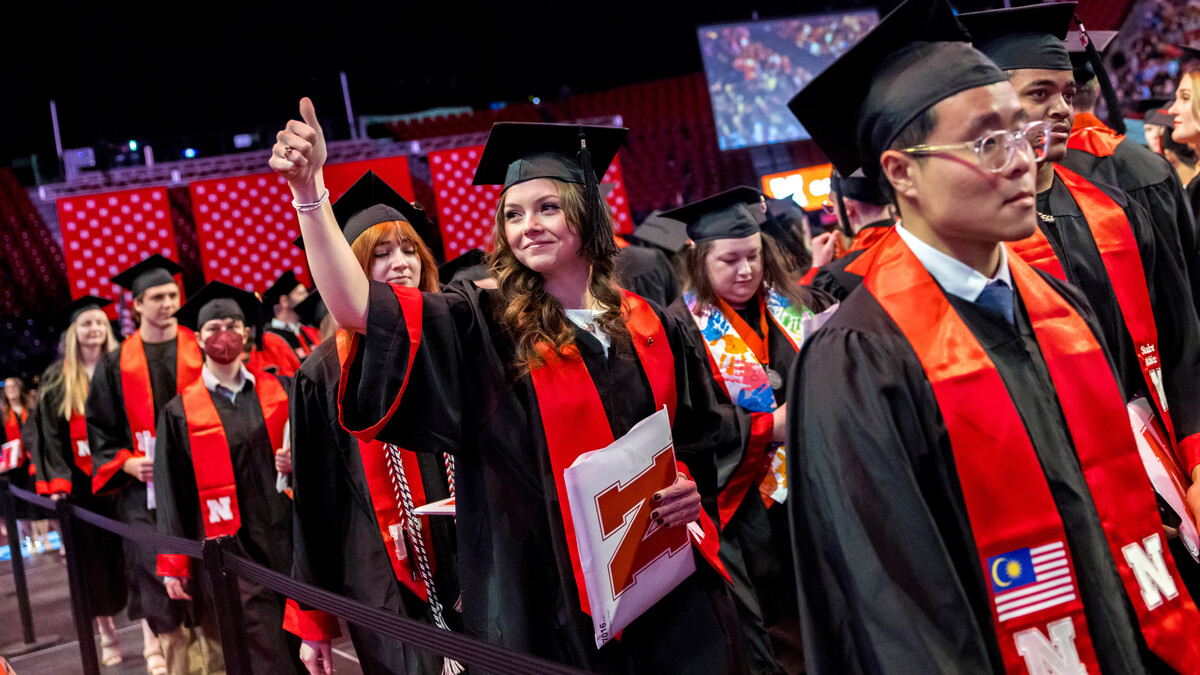
The University of Nebraska–Lincoln climbed seven spots to rank No. 35 globally in the 2026 Princeton Review and Entrepreneur magazine list of the Top 50 Undergraduate Entrepreneurship Programs. Nebraska remains the top-ranked university in the state and No. 10 in the Midwest.
“Jumping seven spots in the global rankings is evidence that our investment in students, faculty and cross-campus entrepreneurship is making a real impact,” said Dr. Jeffrey P. Gold, president of the University of Nebraska system. “At Nebraska, we don’t just teach entrepreneurship, we live it through hands-on innovation, interdisciplinary collaboration and a growing network that empowers students to lead boldly in any industry.”
An event to celebrate the ranking is 11 a.m. Nov. 18 in the Henrickson Family Atrium of Howard L. Hawks Hall. The public is invited to attend.
The Princeton Review conducted a comprehensive survey this summer, collecting data from nearly 300 schools in the United States, Canada, Mexico and Europe. The ranking evaluated each school's entrepreneurship programs, faculty, student experiences and alumni success using more than 40 data points.
“As Nebraska’s flagship, land-grant university, we are committed to turning ideas into meaningful impact,” said Chancellor Rodney D. Bennett. “This ranking reflects the entrepreneurial spirit of our students and faculty, and their dedication to solving real-world challenges that benefit the state and beyond.”
For the second consecutive year, five programs joined forces to drive the university’s success: the Center for Entrepreneurship, Clifton Strengths Institute Builders Program, Engler Agribusiness Entrepreneurship Program, Jeffrey S. Raikes School of Computer Science and Management, and Johnny Carson Center for Emerging Media Arts. The Center for Entrepreneurship led the collaborative effort to submit data for the survey.
“Nebraska’s rise in the global rankings is due to the collaborative nature and the entrepreneurial mindset that runs throughout this university, our community and our state,” said Sam Nelson, Bauermeister Family Presidential Chair in Entrepreneurship, director of the Center for Entrepreneurship and professor of practice in management. “Our faculty, staff, alumni and industry partners come together to provide transformative opportunities for students, whether they choose to launch a new venture, solve a real-world challenge or apply their entrepreneurial skills in any career.”
Over the past year, Nebraska saw a 15% increase in the number of students taking entrepreneurship courses, growing from 1,569 to 1,808. The number of entrepreneurship-related courses offered also increased by 11.5%, expanding opportunities for students across disciplines to engage in entrepreneurial thinking and practice. Students in entrepreneurship courses now represent 109 of the university’s 120 majors, and 74% of the faculty who teach them have started, run or bought a business, ensuring students learn directly from experienced entrepreneurs.
At Nebraska, entrepreneurship means rolling up your sleeves, earning some scrapes and bruises, embracing the grind, solving problems as they emerge and stewarding not only the enterprise, but also the community,” said Tom Field, Paul Engler Chair of Agribusiness Entrepreneurship Program. “In the Engler Agribusiness Entrepreneurship Program, we build people who build businesses designed to make a difference in communities, create opportunities and ignite the power of innovation throughout the Great Plains.”
Megan Elliott, founding director of the Carson Center, noted how Nebraska students are redefining what can be built through entrepreneurship.
“Our students are working across disciplines from filmmaking to alternate reality games and extended reality to social impact and virtual production,” she said. “At Nebraska, our students are not just launching businesses, they’re launching movements, cultural experiences and new forms of storytelling that shape how we engage with the world.”
Student prize funding for entrepreneurial ventures rose from $100,000 to $500,000. Much of that growth stemmed from the inclusion of the Raikes School’s Startup Studio awards.
“Students have the chance to push past their comfort zones as they build ventures of their own while earning college credit through the Raikes School’s Startup Studio,” said Jake Koperski, assistant director of the program. “Thanks to the involvement of Invest Nebraska and their matching partners, we can offer $100,000 in investment funding to the teams who win our annual pitch competition.”
Mentorship also played a role in the university’s rise in the rankings. The number of mentors supporting student entrepreneurs surged from 165 to 252 in a single year for a 52% increase.
“The growth of our Community and Campus Fellows programs reflects the strength of collaboration between the university and the business community,” said Amanda Metcalf, assistant director of the Center for Entrepreneurship. “Across both programs, more than 100 professionals are mentoring students, guest lecturing, judging competitions and connecting students to resources that fuel entrepreneurial success.”
Students in the Clifton Builders Program apply their entrepreneurial talents through hands-on experiences, such as real-world consulting projects with Nebraska businesses.
“Clifton Builders use their natural talents to create a positive impact in their communities, businesses and teams,” said Tim Hodges, Joan Heiser Endowed Presidential Chair, executive director of the Clifton Strengths Institute and associate professor of practice in management. “They’re living entrepreneurship every day by helping others unlock their potential.”
Outcomes reported by alumni also fueled Nebraska’s leap in the rankings. External funding raised by alumni ventures increased from $627,000 to $3.2 million in just one year. This includes graduates from the entrepreneurship major and minor, as well as those connected through the Carson, Clifton, Engler and Raikes programs and the Center for Entrepreneurship.
“Our alumni are the proof that Nebraska’s entrepreneurial spirit endures long after graduation,” Nelson said. “When they share data about their ventures and success, it helps us tell a more complete story of impact, and it’s one of the easiest ways they can help us continue to climb in these rankings."
Nebraska graduates who own their own businesses can share their information and help with future rankings here.
“This ranking reflects the lasting impact Nebraska graduates are making across industries,” Nelson said. "Our collaborative ecosystem propelled Nebraska to this global recognition and positioned it as a top-tier destination for students who want to build, launch and lead. Entrepreneurial success truly starts here at Nebraska.








